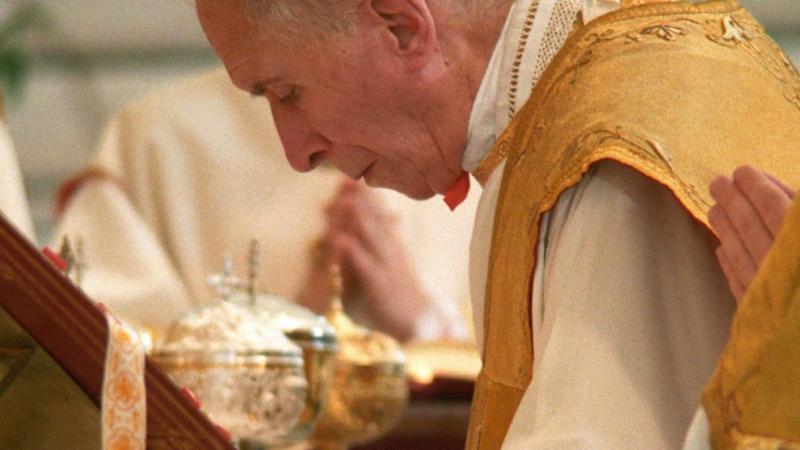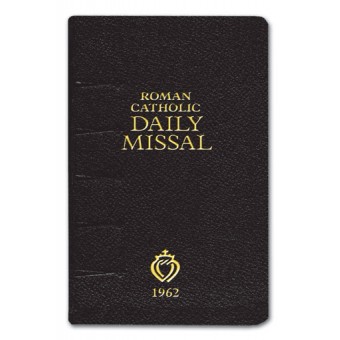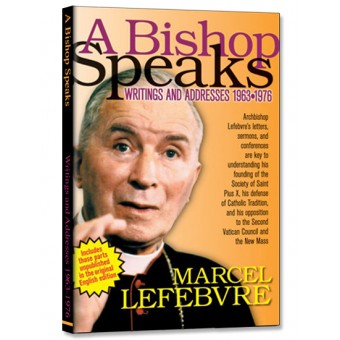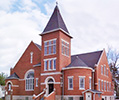Resources

Traditional Roman Mass
The Tridentine Mass was the most widely celebrated liturgy in the world until the introduction of the New Mass by Pope Paul VI in 1969.
Unrestrained gift of self
MISSION
The main goal of the Priestly Society of St. Pius X is to preserve the Catholic Faith in its fullness and purity, to teach its truths, and to diffuse its virtues, especially through the Roman Catholic priesthood. Authentic spiritual life, the sacraments, and the traditional liturgy are its primary means of bringing this life of grace to souls.
VALUES
The SSPX firmly believes that the Catholic Faith changes individual lives as well as society; that the Faith promotes order, justice, culture, and peace; that it offers real and lasting happiness. Despite the widespread unbelief rampant throughout the world today, the SSPX, through the priesthood, continues to unfold and distribute the treasures of Catholic Tradition. This courageous and unrestrained gift of self for the glory of God and the good of souls constitutes the core value and motivation of the SSPX.
VISION
The spirit of the SSPX is missionary; it reaches out across the world—through its priests, religious, and a growing number of families, young people, and all its faithful—to establish and maintain true and lasting devotion to the Catholic Faith. The SSPX thus desires, prays, and works for the salvation of all, trusting that this is possible with God’s help.
Modernism, a dominant philosophical trend of the twentieth century, one still persistent today, is founded on the belief that man is the supreme measure of all reality. Modernism does not simply seek progress and prosperity; it champions an entirely new worldview, one directly at odds with the Catholic Faith.
SUBJECTIVE PERCEPTIONS AGAINST OBJECTIVE ORDER
Truth, according to the modernist, depends upon each individual’s subjective perceptions and beliefs, not upon any objective, universal order descending from God. Truth thus changes from person to person, from age to age, from place to place, and modernism insists that human reason alone can determine what is right and wrong, good and bad, true and false. Most importantly, all individuals have a right by their very existence to exercise this subjective judgment as best pleases them, so long as they do not injure the rights of another individual.
Modernism is, therefore, primarily concerned with protecting and promoting the advancement of the human condition through natural justice, technological progress, religious tolerance, temporal peace, and material prosperity. Man is the measure and end of all things, and no objective reality is more important that his natural well-being here and now.
TRUTH BEYOND OUR LIMITS
Catholicism, however, insists that there is both a universal, objective truth and a much greater reality open to all men beyond our limited, flawed, earthly life. This truth is God, and this greater reality is eternal bliss in Heaven.
God, according to Catholicism, created and constantly sustains the entire universe along with every individual human being. He has, moreover, revealed intimate truths about Himself, truths which exceed the scope of the human mind; they are often mysterious and concerned with supernatural realities. They are not less true for this reason, they are simply more sublime. God taught and, through his one Church, continues to teach these divine, transcendent, unchanging truths so that all men can one day attain the eternal joys of paradise.
TIMELESS, BEAUTIFUL AND MYSTERIOUS TRUTHS
Catholics ultimately trust that God can and does infallibly reveal these timeless, beautiful, mysterious truths whereas the modernists believe that man must discover all truth by himself.
This over-emphasis on the natural power and dignity of man has, in turn, encouraged the modern trends of religious liberty, ecumenism, and collegiality along with numerous liturgical abuses. All of these problems are clearly identifiable in the texts of the Second Vatican Council (1962-65).
Refreshments after Mass
Light refreshments (donuts, cookies, coffee, juice, etc.) ae often served on Sunday following Mass.
This will allow Father an opportunity to meet the chapel’s parishioners on a more frequent basis. It will also allow fellow parishioners the chance to become better acquainted without blocking out an hour or two on a given Sunday. There will usually 3-4 larger meals held each year for special occasions. See the printed bulletin for details.
Consecration to Our Blessed Mother
My Queen, my Mother! I give myself entirely to thee, and to show my devotion to thee I consecrate to thee this day, my eyes, my ears, my mouth, my heart, my whole being without reserve,
Wherefore, good Mother, as I am thine own, keep me, guard me, as thy property and possession.
Catholic Gift Shop
The gift shop is open on Sundays after Mass and offers a fine selection of Catholic books, literature and religious articles.


Mar 17th 2017 by Gretchen Filz
This prayer to St. Joseph is said to be dated to the year 50 A.D., which, if accurate, would make it part of the apostolic tradition. Nevertheless, it is very old and is among the most loved of our traditional Catholic prayers. It has been recited by the faithful for generations, with much positive effect. We do know that this prayer received an imprimatur in 1950 from the Bishop of Pittsburgh, Hugh Boyle.
After the Blessed Virgin Mary, St. Joseph is the most beloved and efficacious saint in heaven, and the guardian and protector of the Universal Church.
THE PROMISE ASSOCIATED WITH THIS PRAYER
This old postscript is commonly included with this prayer:
“This prayer was found in the 50th year of our Lord and Savior Jesus Christ. In 1505, it was sent from the pope to Emperor Charles when he was going into battle. Whoever shall read this prayer or hear it or keep it about themselves, shall never die a sudden death or be drowned, nor shall poison take effect on them; neither shall they fall into the hands of the enemy or be burned in any fire or be overpowered in battle. Say for nine mornings for anything you desire. It has never been known to fail.”
ANCIENT PRAYER TO ST. JOSEPH
Oh, St. Joseph, whose protection is so great, so strong, so prompt before the throne of God, I place in you all my interest and desires.
Oh, St. Joseph, do assist me by your powerful intercession, and obtain for me from your divine Son all spiritual blessings, through Jesus Christ, our Lord. So that, having engaged here below your heavenly power, I may offer my thanksgiving and homage to the most loving of Fathers.
Oh, St. Joseph, I never weary contemplating you, and Jesus asleep in your arms; I dare not approach while He reposes near your heart. Press Him close in my name and kiss His fine head for me and ask Him to return the kiss when I draw my dying breath. St. Joseph, patron of departing souls, pray for me. Amen.
